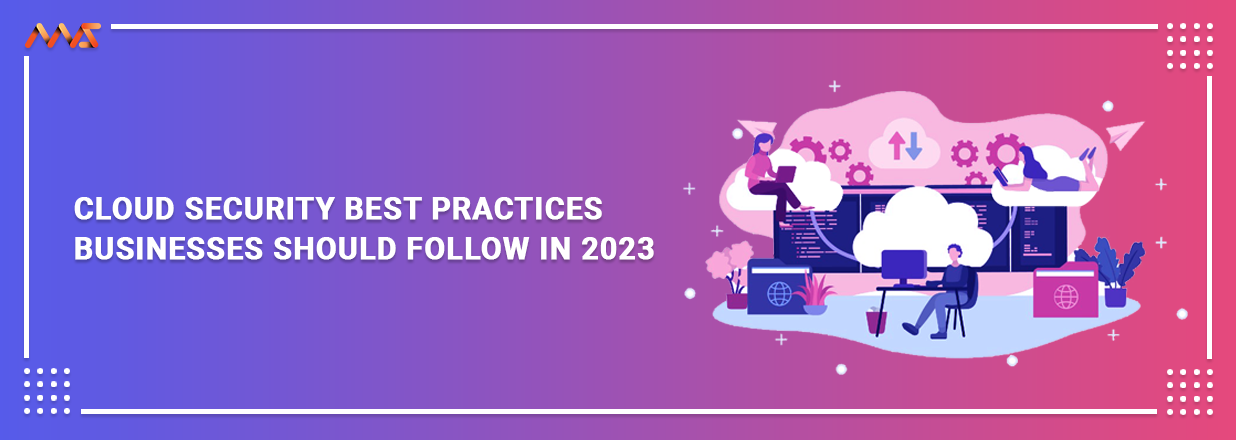Businesses of all sizes are investigating new technologies to acquire a competitive edge as the world becomes more digital. One such technology is cloud computing, which is anticipated to grow from a $29.5 billion global industry in 2020 to $37 billion by 2026.
The advantages of cloud computing have been covered in a lot of speech and writing. It can be simple to overlook the associated risks. This is a major issue because, as the 2022 Thales Cloud Security Report found, 45% of companies had a cloud-based data breach the previous year. Cybercriminals always remember to target businesses with weak defenses.
“To including with the recommending way to insuring standard form with substitute anticipated.”
The good news is that achieving cloud security is not an impossible challenge. You can summit with assurance if you have a good strategy, the right equipment, and a team to help you.
Therefore, grab a cup of your preferred hot beverage and get ready to rise with our in-depth guide on the crucial cloud security best practices that all companies should adhere to in 2023.
Business Cloud Security Is About Shared Responsibility Shared
Responsibility is fundamental in cloud security. In essence, cloud service providers and the companies that rely on them share responsibility for many areas of security. Businesses with on-site IT infrastructures, however, are solely in charge of and accountable for all facets of their safety.
Depending on the kind of cloud service a corporation uses, different parts of cloud security are its responsibility:
Software as a Service (SaaS): The SaaS provider protects the software it provides and the IT environment it uses. The customer is in charge of protecting their accounts, devices, and data.
Platform as a Service (PaaS): The provider must secure the platform and support IT infrastructure. The consumer is in charge of protecting their accounts, devices, data, and applications.
Infrastructure as a service (IaaS): IT infrastructure security is the supplier's responsibility in the case of infrastructure as a service. The client must secure the operating system, network settings, apps, data, hardware, and accounts.
The practical result is that IaaS and PaaS services like AWS, Microsoft Azure, and Google Cloud Platform require more effort from businesses to secure than SaaS solutions like Trello, Slack, or OneDrive do.
Join the Best & Reputable Cloud Provider
That's how crucial picking a reputable cloud provider is; even if you perfectly apply all other cloud security best practices discussed in this post, it will be okay to ignore this step. Your cloud provider will be in charge of everything from actual servers, operating systems and particular applications, depending on the cloud service model you select.
You don't want to learn that the provider's data center needs to be adequately monitored, have basic physical access controls, or be secured.
Protect All User Endpoints
Many cloud service providers describe themselves as virtual fortresses regarding security, promising to shield their clients' data with advanced protection techniques. Cybercriminals frequently target cloud service users because they know how well-protected they are.
Most employees access the cloud services they require for their tasks via various endpoints (desktop computers, laptops, tablets, cellphones, and so forth), and each endpoint is a possible entry point for cybercriminals.
Protecting all user endpoints is necessary to reduce this risk and keep them from eroding your security. Modern endpoint protection tools like Microsoft Defender for Endpoint make this chore considerably simpler, which gives you a comprehensive overview of your network from a single interface.
Conclusion
Cloud-related cyber security incidents are more likely as cloud services are used more frequently. Employing the recommended practices outlined in this article will help businesses reduce this risk. Still, they must also remember that their cloud service providers are tasked with preventing cyberattacks. Only then will the cloud be able to provide the superb source of competitive benefit that it is signified to.
We at Martvalley Services have helped many companies plan and secure their cloud environments, and we would be happy to do the same for you. Schedule a free consultation with us to get started.


